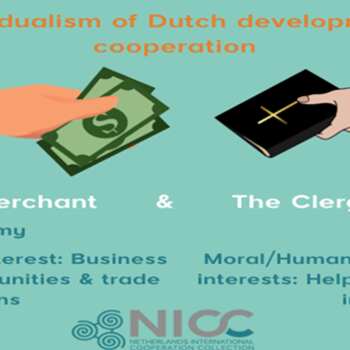The "merchant" embodies self-interest, emphasizing collaboration for business opportunities and strategic trade relations, while the "clergyman" prioritizes altruism, engaging in cooperation out of a strong moral obligation to aid those in need. This dichotomy harkens back to Dutch culture, rooted in the religious trade nation it was 75 years ago, with pillars of Catholics, Protestants, Socialists, and Liberal conservatives.
The merchant and the clergyman
The well-known dichotomy in Dutch development cooperation, often encapsulated as "the merchant and the clergyman," symbolises a fundamental tension within the country's approach.
